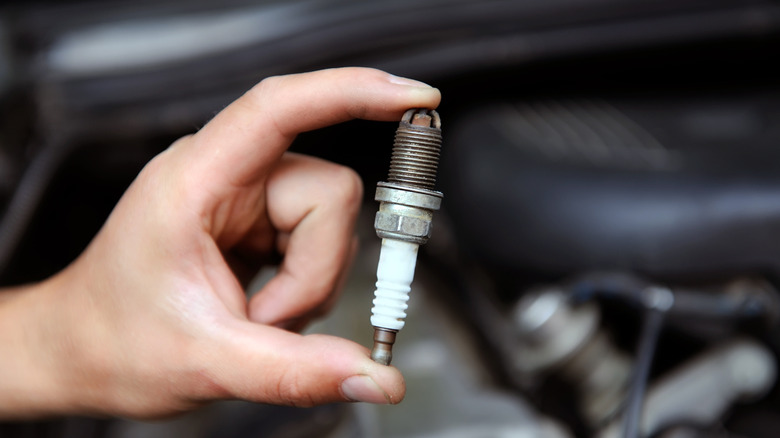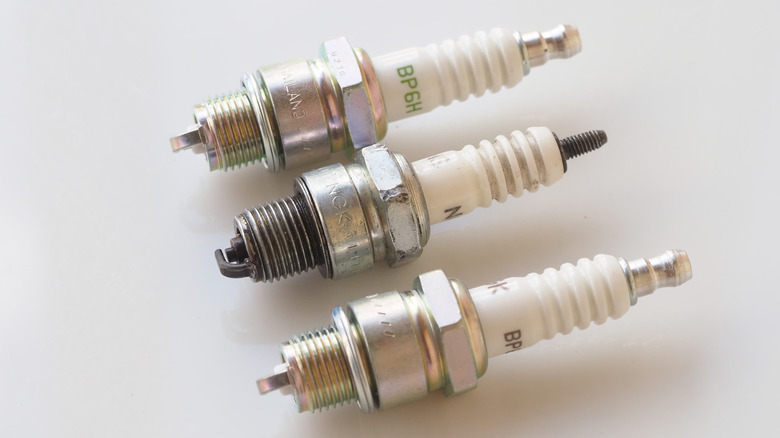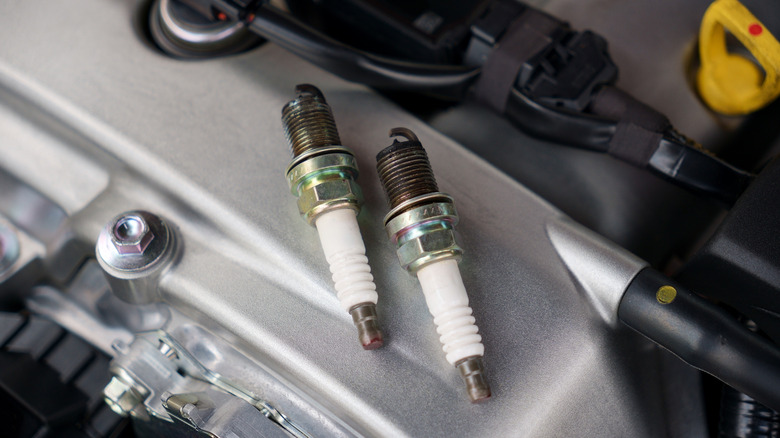Hotter Vs Colder Spark Plugs: What Are The Pros And Cons Of Each?
A car's ignition system is a complex interplay of electrical pulses firing at the precise right moment, which allows your car's engine to hum along at your command. When it comes to wiring and spark plugs, many car owners — and even some enthusiasts — may overlook their importance. Changing spark plugs at the correct interval should be a part of routine maintenance, and ensuring that you use the manufacturer recommended ones is crucial.
There are many brands out there to consider, and various cheap and expensive options as well. Furthermore, hot and cold plugs, while sometimes mistaken for the actual spark temperature, refer to the speed with which a plug can dissipate heat. If the incorrect heat range is used, it can cause catastrophic damage to a car's engine via pre-ignition or carbon fouling, which can hamper power and efficiency.
A hot plug has much slower heat transfer, and as such, the firing tip of the plug remains hotter; a cold tip will transfer heat into the head of an engine quickly, and conversely, its tip stays cooler. They operate well at temperature ranges of 932 to 1472 degrees Farenheit under normal circumstances, while modified engines with forced induction like turbochargers, for example, may require different heat ranges. The bottom line is that there are pros and cons to hot and cold plugs, with neither being better or worse, as we will discuss below.
Pros of the plugs
Hot plugs are found in most regular passenger vehicles driven in city traffic or under normal load scenarios. One of the pros is that they can stop carbon deposits from building up due to their design, as their tips remain much hotter during the ignition phase.
This means that engines can burn cleaner and work more efficiently, while incorrect heat range plugs can actually increase fuel usage by as much as 15%. Another good aspect of hotter plugs is that they are reliable for stock engines and can allow for thousands of worry-free miles with their reduced carbon fouling.
Cold plugs are usually found in high-revving, high-performance cars where every facet of the ignition system is optimized for speed. It has a smaller exposed surface area exposed to the combustion of cylinder gases, which then can rid itself of excess heat faster as the energy is dissipated.
They are at home in heavy-duty use cases like towing heavy things under load for long periods of time or, at the race track, when the pedal is to the floor more often than not. They help to prevent any pre-ignition issues, which is essential for high-performance engines, and will also help plug fouling due to their design, as they prevent the plug from overheating. This, in turn, lessens the risk of damage to the engine internals.
Cons of the plugs
Hot plugs have their downsides with the main issue being a risk of pre-ignition in forced-induction engines. If not properly addressed, using these plugs in the wrong scenario could cause a catastrophic engine failure, leading to a serious dent in your wallet.
When installing spark plugs with a different heat range, it's always recommended to stick more towards the side of a colder plug, as running too cold of a plug can cause some carbon fouling, while too hot of a plug can cause damage. To this end, a general rule is that one heat range cooler should be chosen for each 75 to 100 horsepower added. Another con of hot plugs is that if you endeavor to modify your car, they won't work with advanced timing requirements and will likely fail.
Cold plugs are prone to carbon building up as they transfer heat faster, since they will never quite get hot enough to burn off all that residue. This, in turn, can mean plug rotation intervals being shorter, thus costlier operation, in addition to the risk of having dirty combustion — potentially misfiring and stalling out, or piston seizure and cylinder erosion in the absolute worst case scenario. This could take you out of the game in a very serious and costly way, with a melted spark plug electrode to blame. Bottom line: Ensuring your engine has the right spark plugs will keep you on the road longer.


